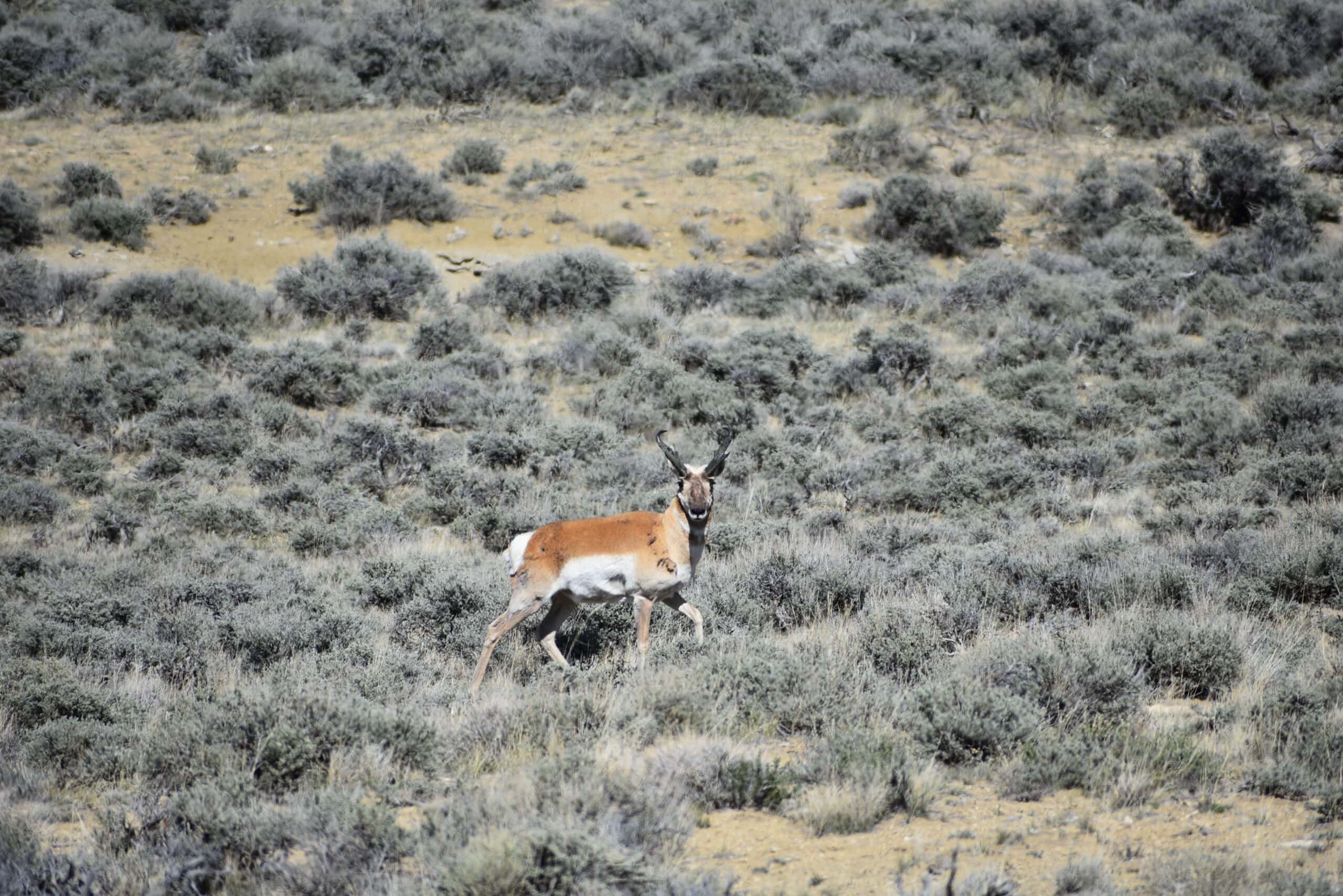Share this article
Sneak preview part two: 2016 conference workshops
Our 2016 Annual Conference workshops will be conducted on Saturday, October 15. If you missed last week’s announcement of six of the 12 workshops, click here to view that feature story. Below you’ll find the other six terrific sessions we have planned for that day.
Complete abstracts will soon be available at our conference website. A limited number of slots are available for each workshop to improve the experience and value for attendees, so mark your calendar and register early to secure your spot!
Essentials of Managing Conflict in Environmental Disputes
Organizers: Maggi Sliwinski, University of Nebraska-Lincoln, Lincoln, NE; Mary Lou Addor, Natural Resources Leadership Institute, Raleigh, NC
Supported by: Early Career Professional Working Group, Human Dimensions Working Group
This workshop is for wildlife professionals who want to gain knowledge about concepts and skills that can assist in effectively managing conflict in natural resource and environmental issues. Understanding and properly handling conflict are skills that are needed for successfully advancing in a career at all levels of responsibility.
This interactive workshop will introduce working professionals and students to essential concepts and skills for effectively managing the many aspects of public conflicts, including decision making, public involvement, and facilitation and negotiation. Participants will take part in pre-work exercises in preparation for the workshop. The day of the workshop will include high engagement and peer-to-peer learning in understanding the broad range of interpersonal skills required to be successful as a working professional in a technical and scientific environment.
Intermediate R Workshop
Organizers: Robin Russell USGS National Wildlife Health Center, Madison, WI; Dan Walsh USGS National Wildlife Health Center, Madison, WI; Kezia Manlove, Dept. of Biology, Penn State University, State College, PA; J. Joshua Nowak, Wildlife Biology, University of Montana, Missoula, MT; Beth Ross, South Carolina Cooperative Fish and Wildlife Research Unit, Clemson, SC
Supported by: Biometrics Working Group
R is a free and globally recognized software for conducting statistical analysis. R’s many “packages” allow for users to conduct many advanced statistical techniques using one software program.
In this session we will focus on intermediate R skills such as writing simple functions, plotting, simulating data, and using the “glm” function, the workhorse of R regression analysis. Sessions will combine lectures with hands-on training in R. Participants are requested to bring laptops with R Studio installed, and preferably (though not essentially) with updated versions of program R.
Animal Trapping Techniques for Researchers and Managers
Organizers: Pat Jackson, Nevada Department of Wildlife, Reno, NV; Bryant White, Association of Fish and Wildlife Agencies, Columbia, MO
This carefully constructed workshop can give everyone from entry-level technicians and students to chief administrators and university professors the background they need to implement the battery of trapping techniques needed to study and/or control birds, feral pigs, cats and other felids, canids, and other invasive large vertebrates or research animals requiring capture.
The workshop will 1) demonstrate the full range of modern trapping equipment available including mist nets, snares, cable restraints, cage traps, foot holds, and body-gripping traps; 2) impart techniques to maximize the capturing potential of each tool and show how to use each most humanely; 3) demonstrate how to modify, set, and properly use each trap and device type; 4) provide consultation to each participant to suit their individual needs.
Workshop participants will learn how to set, bait, and camouflage traps in an actual field setting near the training site.
Data Management Fundamentals for Long-Term Wildlife Studies
Organizers: Robert Sutter, Enduring Conservation Outcomes, Savannah, GA; David Rugg, US Forest Service, Madison, WI; Craig Palmer, CSRA, Alexandria, VA
Supported by: US Forest Service
Long-term monitoring and research projects are essential to understand ecological change and the effectiveness of management activities for wildlife species.
This workshop will provide guidance for the development of comprehensive, concise, and effective data management for long-term studies. The guidance is presented as a graded approach, matching the scale of data management to the needs of the organization and complexity of the project. Specifically addressed are: roles and responsibilities, consistent and precise data collection, calibration of field crews and instrumentation, data completeness and quality, development of metadata, archiving data, and communicating and sharing data. The guidance will help practitioners execute effective data management, thereby, improving the quality and usability of data for meeting project objectives as well as broader meta-analysis and macrosystem ecology research.
Quantitative Analysis of Satellite-Derived Data for Animal Ecology and Conservation
Organizer: Guillaume Bastille-Rousseau, State University of New York – College of Environmental Sciences and Forestry, Syracuse, NY
Supported by: SUNY-ESF Roosevelt Wild Life Station
The increased availability of satellite-derived data, including various satellite imageries and spatial location data (e.g. telemetry), has led to a tremendous shift in how ecologists can answer ecological questions and address conservation needs. This workshop will provide an overview of the use of satellite-derived data in ecology and conservation. It will combine short capsules presenting different sources of data and methods on how such data can be analyzed. This will be followed by hands-on tutorials followed by exercises and group discussion.
Topics will cover the acquisition of satellite data from online databases (such as habitat classification layer and other remote sensing indices), pre- and post-processing of satellite imageries, spatial and temporal statistics applied to raster layers, integration of vector layer with raster data, and examples of analyses combining telemetry locations and satellite data.
Foundations of Survey Sampling
Organizer: Steve Sheriff, SLS Ventures, Columbia, MO
Supported by: Human Dimensions Working Group
Wildlife biologists, managers, and researchers use survey sampling techniques to estimate characteristics of entire populations in a cost-effective manner. Over the last 4 decades, characteristics of human activities, opinions, and values have become of interest to wildlife managers and researchers. During the last two decades, this focus on human dimensions has accelerated in both the fields of wildlife management and survey research. So that proper inferences from estimates can be extended to an entire population of interest when using statistical sampling techniques, the methods used must be based on a firm foundation.
This workshop is designed to provide an in-depth exploration of these foundations so that meaningful inferences can be drawn from the sample to the population of interest. Participants will use MS EXCEL 2007 or newer on their own laptops for hands-on demonstrations and exercises using basic EXCEL functions, such as SUM, AVERAGE, and VAR.
Header Image: ©NCDOTcommunications








